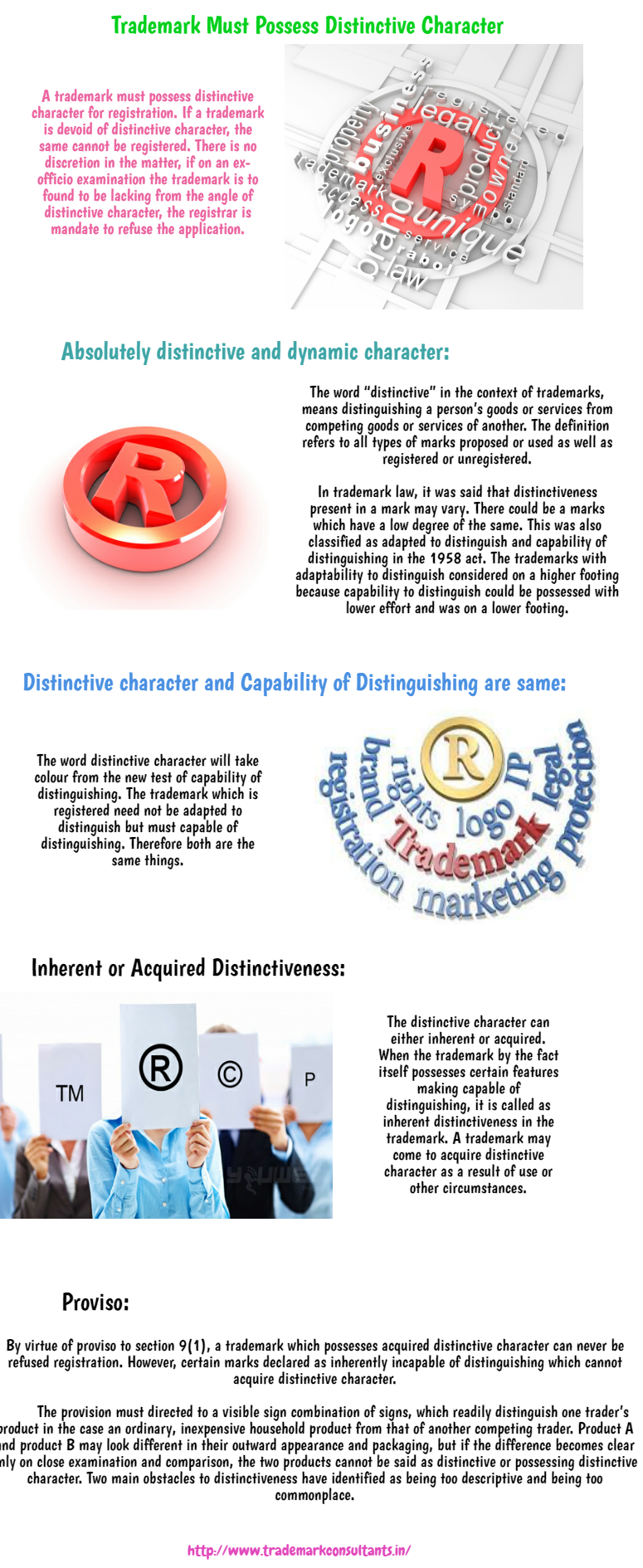Trademark Must Possess Distinctive Character
A trademark must possess distinctive character for registration. If a trademark is devoid of distinctive character, the same cannot be registered. There is no discretion in the matter, if on an ex-officio examination the trademark is to found to be lacking from the angle of distinctive character, the registrar is mandated to refuse the application.
Absolutely distinctive and dynamic character:

The word “distinctive” in the context of trademarks, means distinguishing a person’s goods or services from competing goods or services of another. The definition refers to all types of marks proposed or used as well as registered or unregistered.
In trademark law, it was said that distinctiveness present in a mark may vary. There could be a mark which have a low degree of the same. This was also classified as adapted to distinguish and capability of distinguishing in the 1958 act. The trademarks with adaptability to distinguish considered on a higher footing because the capability to distinguish could be possessed with lower effort and was on a lower footing.
Distinctive character and Capability of Distinguishing are same:

The word distinctive character will take color from the new test of the capability of distinguishing. The trademark which is registered need not be adapted to distinguish but must capable of distinguishing. Therefore both are the same things.
Inherent or Acquired Distinctiveness:

The distinctive character can either inherent or acquired. When the trademark by the fact itself possesses certain features making capable of distinguishing, it is called as inherent distinctiveness in the trademark. A trademark may come to acquire the character as a result of use or other circumstances.
Proviso:
By virtue of proviso to section 9(1), a trademark which possesses acquired distinctive character can never be refused registration. However, certain marks declared as inherently incapable of distinguishing which cannot acquire the character.
The provision must directed to a visible sign combination of signs, which readily distinguish one trader’s product in the case an ordinary, inexpensive household product from that of another competing trader. Product A and product B may look different in their outward appearance and packaging, but if the difference becomes clear only on close examination and comparison, the two products cannot be said as distinctive or possessing character. Two main obstacles to distinctiveness have identified as being too descriptive and being too commonplace.
We“Solubilis Corporate Services” provides the business solution to the clients for all their business related requirements. Guiding and motivating the clients from the team of experts, will eventually help to enhance their career. We offer services at various locations. Click Here
